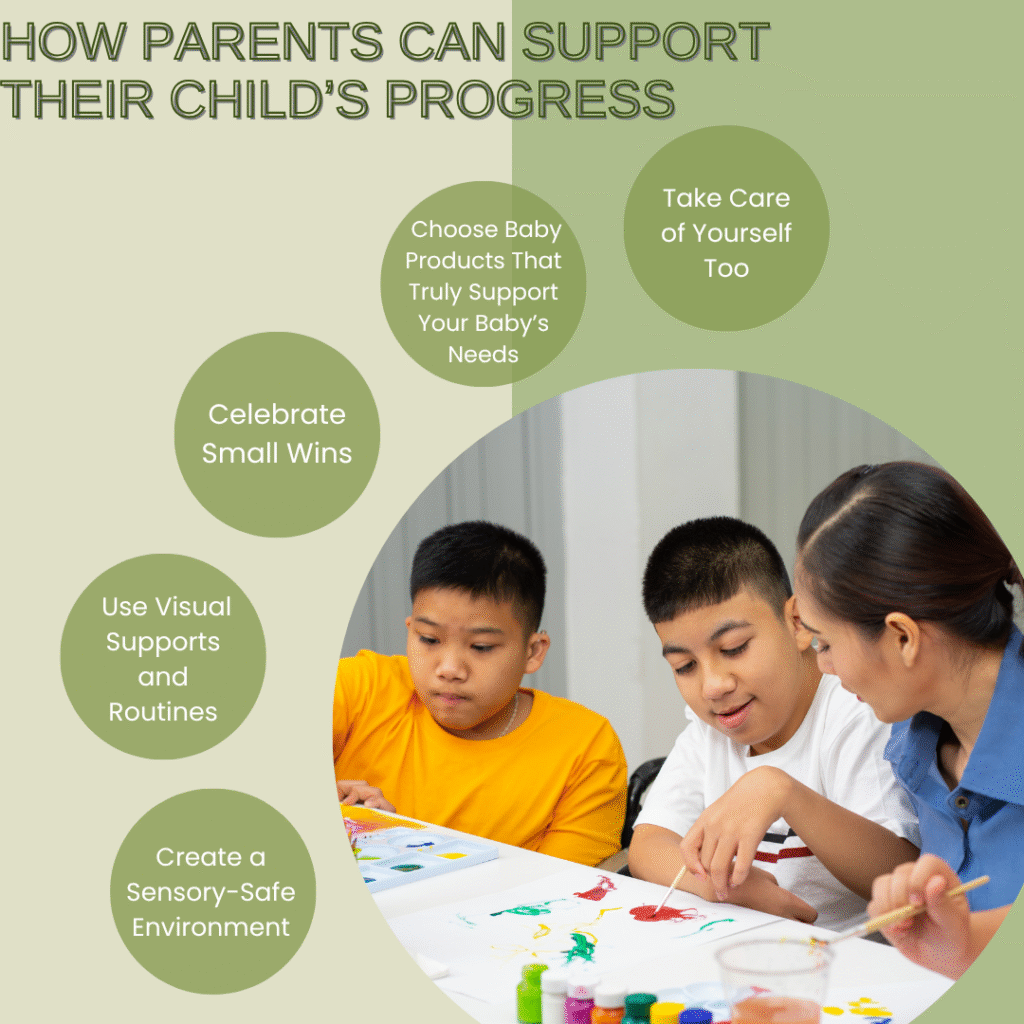As a parent, nothing compares to the moment you first hold your baby and imagine all the wonderful milestones ahead, their first smile, their first step, their first word. But when your child isn’t hitting those milestones the way you expected, the questions and worry come rushing in.
If your little one has been diagnosed with a neurodevelopmental disorder, or if you suspect something isn’t quite typical, you’re not alone, and more importantly, there’s real hope. Today, let’s talk honestly about what real progress looks like for kids with these conditions and how you, as a caregiver or parent, can support it every single day.
Parents often ask:
- What does real progress look like?
- How can I help my child at home?
- Does early intervention really work?
What Are Neurodevelopmental Disorders?
Neurodevelopmental disorders are a group of conditions that affect brain and nervous system development, often appearing early in childhood. They can impact behavior, speech and language development, learning ability, attention, motor skills, and social interaction.
Common types of neurodevelopmental disorders include:
- Autism Spectrum Disorder (ASD)
- Attention-Deficit/Hyperactivity Disorder (ADHD)
- Intellectual Disabilities
- Communication Disorders
- Motor Disorders (e.g., dyspraxia, tics)
- Global Developmental Delay (GDD)
These conditions vary widely in severity and symptoms. Each child is unique in how they experience them.
What Causes Neurodevelopmental Disorders?
Causes can include genetics, prenatal environment, and early brain development issues. Understanding the causes of neurodevelopmental disorders helps families explore behavioral therapy, occupational therapy, and speech-language therapy as early interventions.
Real Progress Looks Different for Every Child
Progress doesn’t mean perfection. Sometimes, we’re so focused on catching up to “typical” milestones that we forget to celebrate real victories.
Examples of real progress:
- Making eye contact for the first time
- Using one or two words meaningfully
- Sleeping through the night with less anxiety
- Tolerating new textures or foods
- Playing alongside another child
- Accepting physical touch or cuddles
These milestones, while they may seem small to others, are huge victories in your world, and they are worth celebrating.
Does Early Intervention Really Work?
Yes. Early intervention programs for neurodevelopmental disorders are proven effective. According to the Centers for Disease Control and Prevention (CDC) and research from the Harvard Center on the Developing Child, early experiences shape lifelong learning, behavior, and health.
Key steps:
- Act if you notice early signs of autism or ADHD
- Don’t wait for a formal diagnosis to start support
- Trust your instincts as a parent

How Parents Can Support Their Child’s Progress
Parenting a child with a neurodevelopmental disorder is about supporting, not fixing. Here are practical steps:
1. Create a Sensory-Friendly Environment
Children with NDDs often struggle with sensory processing difficulties. Use tools like:
- Weighted blankets for sensory regulation
- Noise-canceling headphones
- Tactile toys for sensory play
2. Use Visual Supports and Routines
Kids with communication disorders benefit from:
- Visual schedules and picture boards
- First-then boards
- Social stories
Structured daily routines for children with developmental delays reduce anxiety.
3. Celebrate Small Wins
Keep a journal or video log of milestones. Your child’s progress, no matter how small, matters.
4. Choose Thoughtful Baby Products
Look for developmental toys and sensory-friendly products that support fine and gross motor skills. These tools complement therapy for neurodevelopmental disorders at home.
5. Take Care of Yourself
Parenting is demanding. Join parent support groups, practice self-care, and seek resources like Understood.org for community and guidance.
Real Stories, Real Progress
From a toddler with speech delay saying “mama” after speech-language therapy to a child with dyspraxia improving motor skills through occupational therapy, every story is unique, and worth celebrating.
Trusted Resources
- CDC – Developmental Milestones
- Autism Speaks – Toolkits and Parent Guides
- Understood.org – For Learning & Attention Issues
- Harvard Center on the Developing Child
- American Academy of Pediatrics (AAP)
These organizations provide expert-backed guidance, printable tools, and links to early intervention programs.
A Final Word From One Parent to Another
You’re doing better than you think. No two children, or parents, are the same. Show up, love big, and stay curious. When you need help, remember: you’re not alone.
Parenting is about real support, real families, and making progress, one small step at a time.
Medical Disclaimer:
This article is for informational purposes only and does not replace professional medical advice. Always consult a pediatrician, developmental specialist, or therapist for your child’s specific needs.




